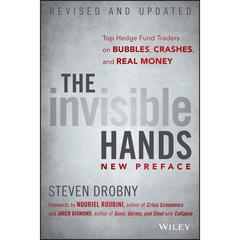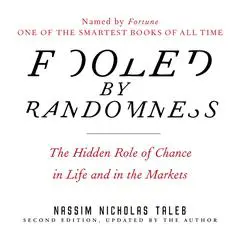 Play Audiobook Sample
Play Audiobook Sample
Guns, Germs and Steel (Abridged): The Fates of Human Societies Audiobook
 Play Audiobook Sample
Play Audiobook Sample
Quick Stats About this Audiobook
Total Audiobook Chapters:
Longest Chapter Length:
Shortest Chapter Length:
Average Chapter Length:
Audiobooks by this Author:
Publisher Description
Winner of the Pulitzer Prize In this groundbreaking work, evolutionary biologist Jared Diamond stunningly dismantles racially based theories of human history by revealing the environmental factors actually responsible for history’s broadest patterns. It is a story that spans 13,000 years of human history, beginning when Stone Age hunter-gatherers constituted the entire human population. Guns, Germs, and Steel is a world history that really is a history of all the world’s peoples, a unified narrative of human life.
Download and start listening now!
"This was a great, intense book of how geography has helped shape human evolution and the diversity thereof. At times it can be rather dry & is overloaded with so much information, but it's still an amazing book. Jared thoroughly ties it altogether in the epilogue. Likewise for the prologue, Jared poses a question (why humans evolved the way they did which resulted in how some cultures obtained eventual dominance over other cultures via the avenues of guns, germs & steel) and explains how he will answer that question throughout the chapters in his book. The answer, short & sweet (what I got out of it) was: geography. Location matters. Oh, one more note- you have to believe in evolution for any of his research to hold any water."
— Stacey (4 out of 5 stars)
Awards
-
Winner of the 1998 Pulitzer Prize for General Nonfiction
Guns, Germs and Steel Listener Reviews
-
" After 3 chapters the book became repetitive. Yes, I got the book's theme (geographical determinism), thank you very much, just didn't find it original or surprising. "
— Mary, 2/18/2014 -
" This was probably my favorite view of history that I've read. Takes a unique look at how and why things turned out the way they did. "
— Scott, 2/18/2014 -
" This book seeks to answer a pretty interesting question: why did Eurasians develop civilizations capable of conquering the civilizations in the Americas, Africa, and Australia, and not the other way around? Were the people in Eurasia superior in some way, or were other factors at work? Diamond's answers, at least early in the book, really drew me in. But then he seemed to basically repeat the same conclusions in different ways for 200 more pages. This book is over 400 pages long and I feel like it could have been written in about half that length. It's still interesting overall, and his conclusions make sense, but it is a bit of a chore to read the whole thing. I'd recommend this for pretty serious readers of history, anthropology, and sociology, but not for casual "buffs" of those fields. "
— Russ, 2/14/2014 -
" I read this before I went to grad school for history, and liked it. I wonder if I'd feel differently now, after reading lots of environmental history? "
— Dan, 2/2/2014 -
" "Very good! A little long-winded for my taste, but cool. I like the last section (Part IV) best." "
— Travis, 1/24/2014 -
" Thought-provoking. Not sure I am convinced. "
— Ruth, 1/20/2014 -
" Wonderful book! If you want to know about our civilization. It is the perfect book to read. "
— Marita, 1/17/2014 -
" This book is what you get when you combine an overly simplistic worldview with a bad case of confirmation bias. "
— Matt, 1/4/2014 -
" The intriguing thesis is well supported: various civilizations' lack of or abundance of food production, arising as a consequence of each society's geographic location, led to the rise of some civilizations (i.e. Europe) over others. It's a great study of world history, epic in scope. I enjoyed it. "
— Rob, 1/3/2014 -
" Didn't love it and didn't find it that well-researched. I think the hype comes from an interesting premise. Disappointed in the final result. "
— Krystyn, 12/11/2013 -
" this book has very good points, but is a beating to read. Not a real page turner. but very informative "
— Dawn, 12/6/2013 -
" Really interesting book, but a little dry/academic, and with a significant focus on New Guinea. I think Bill Gates' quote on the back of the book sums it up perfectly: It's a great foundation for any study of world history. "
— Jonathan, 12/5/2013 -
" Some good stuff but deadly to read "
— Lois, 11/25/2013 -
" Some useful info here on the origins of agriculture, but otherwise seemed very biased to me, like he started with a theory and them looked for evidence to back it up. Funny section about the necessity of the state at the end, totally unsupported. "
— William, 10/2/2013 -
" I didn't really read it. This was back when I listened to books (haven't done so in years), but it waspretty interesting. "
— Peter, 5/8/2013 -
" A realistic picture of the outcomes when opposing societies meet. The result is usually one society destroying the other. "
— Bill, 4/18/2013 -
" His thesis is a sound, but the writing style and repetition put me off. "
— Joseph, 8/21/2012 -
" A interesting analysis on what caused some societies to flourish while other did not. It seeks to move beyond the normal, inherently racist explanations (e.g. "white people are smarter and more inventive that blacks, natives, etc.". Good stuff. "
— Devin, 5/28/2012 -
" Great, but long. Really. Really. Long. "
— Davey, 5/18/2012 -
" An extremely heavy reading, but a pleasurable ride with one of the world's profound do professionals in biology and anthropology "
— Ahmed, 8/15/2011 -
" A test of endurance at times, but tremendously rewarding once finished. Wow. "
— William, 6/15/2011 -
" Very interesting information, but long and very dense. Not light reading. "
— Matthew, 5/23/2011 -
" Fascinating! Packed full of details and information, but very readable. Things I wondered about over the years were answered very completely. "
— Paula, 5/23/2011 -
" A bit too long and somewhat repetitive, but a must-read for anyone interested in the history of civilizations. The most logical explanation I've ever encountered as to why some civilizations and peoples crumble in the wake of others. "
— Bill, 5/22/2011 -
" White men are terrible terrible people and they win at everything. "
— Ted, 5/20/2011 -
" Not very entertaining, but factually interesting and surprising. A worthwhile read. "
— Lauree, 5/19/2011 -
" Very interesting how he compares 'historical science' with other scientific fields. :) Wonderful book, with a very good examination of people throughout history. "
— Carrie, 5/18/2011 -
" This is one of those books that really shaped the way I think about evolution, economics and culture. I have referred countless people to Guns, Germs and Steel as a step to looking at possible reasons why the world has shaken out to its current state. "
— Kate, 5/17/2011 -
" rare look at physical, environmental explanations for broad trends in world history. "
— Bmcnett, 5/13/2011 -
" This book did not interest me. I had to read this for my AP World History class, so I didn't read this just because I could. The book was very repetitive and could have been summarized into a book half as long. The book wasn't bad - Jared Diamond is a great author - but I did not appeal to me. "
— Lue, 5/8/2011 -
" Not usually my cuppa, but this was fascinating. There were only a few places where the science-speak made me glaze over. "
— Tony, 5/6/2011 -
" Too dry for me. Found my mind wondering a lot. This did not keep me interested. His conclusions seem too obvious. "
— Jason, 5/6/2011 -
" He puts it all together. Excellent. <br/> "
— Donalda007, 5/4/2011 -
" Jared's writing style is a bit dry, and the book could have used an editor with a closer eye to tightening it up, but an otherwise excellent book. "
— Patrick, 5/2/2011
About Jared Diamond
Jared Diamond is a professor of geography at the University of California, Los Angeles. He began his scientific career in physiology and expanded into evolutionary biology and biogeography. He has been elected to the National Academy of Sciences, the American Academy of Arts and Sciences, and the American Philosophical Society. Among Dr. Diamond’s many awards are the National Medal of Science, the Tyler Prize for Environmental Achievement, Japan’s Cosmos Prize, a MacArthur Foundation Fellowship, and the Lewis Thomas Prize honoring the Scientist as Poet, presented by Rockefeller University. He has published more than two hundred articles and his book Guns, Germs, and Steel was awarded the Pulitzer Prize.
About Grover Gardner
Grover Gardner (a.k.a. Tom Parker) is an award-winning narrator with over a thousand titles to his credit. Named one of the “Best Voices of the Century” and a Golden Voice by AudioFile magazine, he has won three prestigious Audie Awards, was chosen Narrator of the Year for 2005 by Publishers Weekly, and has earned more than thirty Earphones Awards.






























